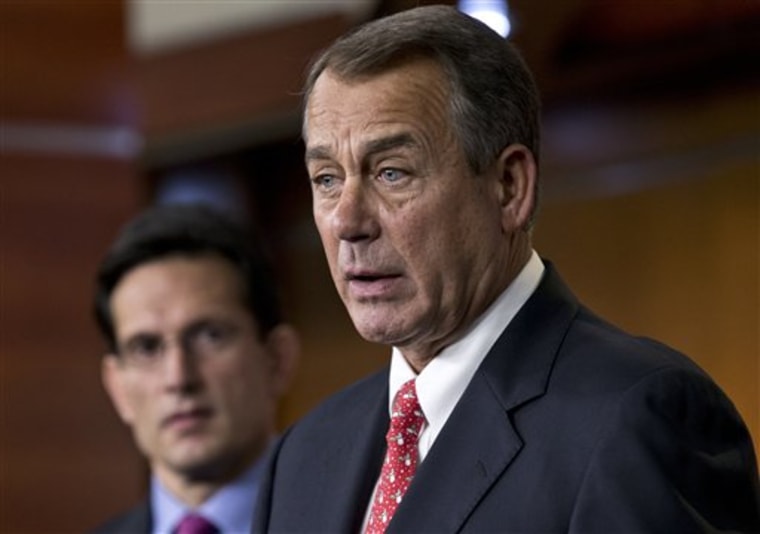House Republicans will continue their lesson in symbolic futility this week as they prepare to cast their 37th vote to repeal all or part of the Affordable Care Act.
House Speaker John Boehner is officially reneging on his short-lived acceptance that "Obamacare is the law of the land," by holding a vote Thursday to fully repeal Obamacare. Last November, shortly after the 2012 election, when asked if he planned to spend time on further repeal votes, Boehner insisted that while he might try to repeal "parts" of the bill, the election had changed the situation. Conservative backlash from within his party quickly forced him to backtrack on that claim.
Both House Minority Leader Nancy Pelosi and Senate Majority Leader Harry Reid have slammed Boehner's plans for this new vote—which has essentially no chance of passing the Senate, much less making it past Obama's desk. Reid went so far as to say the vote proves Republicans have "lost their minds."
“Albert Einstein defined insanity as follows: doing the same thing over and over again and expecting different results,” Reid told reporters Wednesday. “If his definition is true—and I won’t argue with Einstein—then House Republicans have truly lost their minds.”
Just how futile is the vote? The Congressional Budget Office isn't even bothering to score it. In a letter to House Budget Committee Chairman Paul Ryan, CBO Director Douglas Elmendorf explained that his office is too busy to take on the task of estimating its impact, instead pointing him to the estimated impact of the 2012 repeal attempt, which would increase the deficit by $109 billion.
But some veteran Republicans who are staunchly opposed to the law see this symbolic vote as a gift to their conservative freshman colleagues (even though it is ultimately a vote in favor of growing deficits) who were not able to have a voice in the 112th Congress's 36 votes to repeal the health reform law.
“If you’re a freshman—the guys who’ve been up here the last year, we can go home and say listen, we voted 36 different times to repeal or replace Obamacare. Tell me what the new guys are supposed to say?” Congressman Mick Mulvaney asked late last month. “We haven’t had a repeal or replace vote this year.”
Boehner echoed those comments just last week. “We’ve got 70 new members who have not had an opportunity to vote on the president’s health care law,” he said. “Frankly they’ve been asking for an opportunity to vote on it.”
Those members could be asking for that vote because of public perception of Obamacare. Despite the many polls that have shown the individual provisions of the law are popular, the most recent tracking poll conducted around the three year anniversary of the signing of the law found slightly more Americans oppose than support it—along a sharp partisan divide likely to benefit Republicans in conservative districts.
The same poll also found that a little more than half the country supports attempts to repeal the law, no matter how futile they may be.
